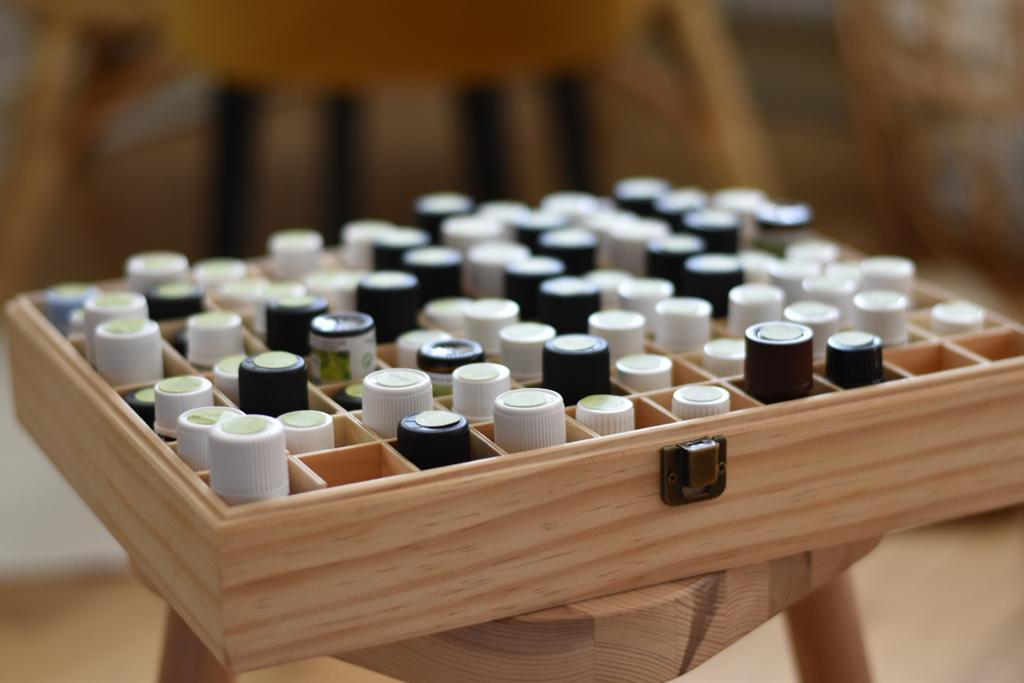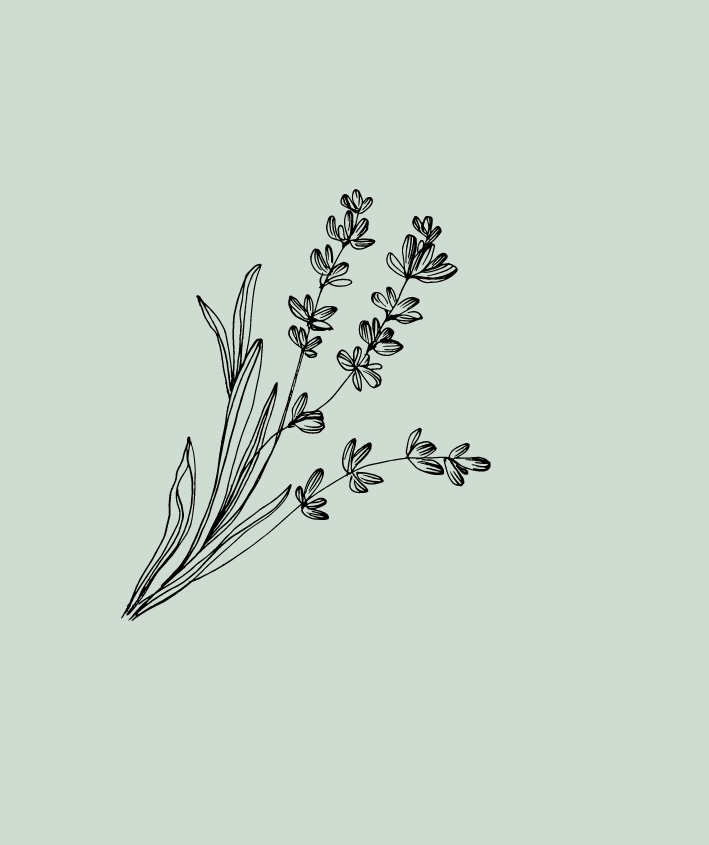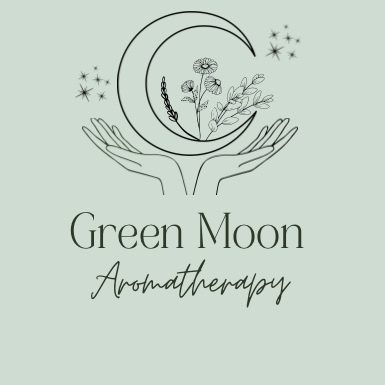What is an essential oil?
An essential oil is a concentrated volatile liquid essence of a plant containing chemical compounds with medicinal properties. Essential oils are the concentrated power of plants and are precious. Just to give you an idea, a 10ml bottle of lavender essential oil contains around 30 kg of lavender flowers!
Each essential oil is made up of around 100 active aromatic molecules that have powerful healing properties.
The techniques used to extract essential oils vary depending on the plant and which part is used (flower, leaf, zest, bark etc). The most common one is steam distillation, but other methods such as extraction or expression are also used.
How do they work?
Essential oils are primarily absorbed through inhalation/olfaction (via the nose) or absorption (via the skin) and then go into the bloodstream. They are then able to affect the body through several systems (respiratory, circulatory, nervous, etc) and create a faster and more lasting effect than taking a pill (and without the side effects).
There are several ways to use essential oils (see below) depending on the issue to treat.
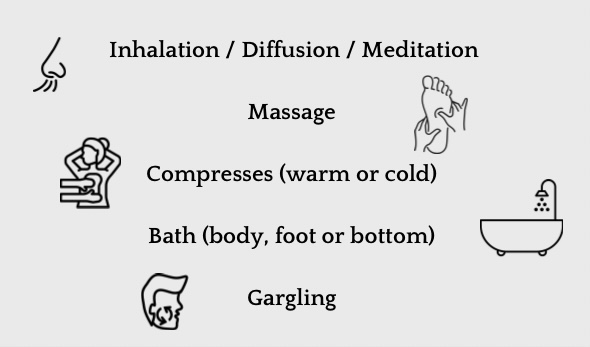
Inhalation or olfaction is a good method for emotional healing, respiratory issues or meditation. You can for example use a diffusor, take a few drops on a tissue or your wrists/palm of your hands and smell it or the easiest way: smell directly from the bottle.
Skin application (massage, compresses, bath) is best for skin related matters or if you want to target a specific organ or body part (digestive problem or sports injury for example).
A full body aromatherapy massage combines both methods as the oils are absorbed simultaneously through the noise and skin – combined with massage techniques that improves circulation, lymphatic drainage, reduces aches and gives an overall balance.
Note: that each essential oil has its own set of chemical components and not all essential oils are suitable for all application methods. Some are toxic for diffusion, skin application or gargling. Please refer to the precautions stated here.
For specific application examples and dosage, feel free to contact me or get advice from a professional aromatherapist for the most efficient and safe way to use essential oils.
Essential oils properties
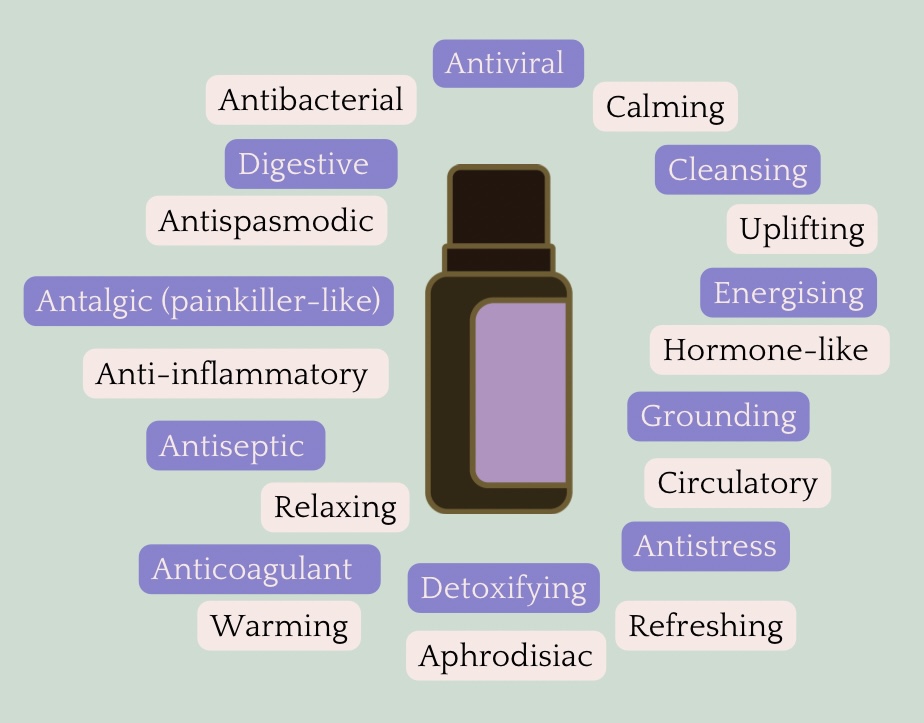
How to choose a good quality essential oil?
There are a lot of manufacturers on the market and it can be difficult to know which one to choose. Many aspects affect the quality of essential oils (their chemical composition and energetic vibration) such as the geographical origin, cultivation method, distillation process, etc, so choosing premium essential oils is very important. The oil must be 100% pure and natural. As a general rule, the label should show the common name, Latin name, geographical origin and which part of the plant was distilled (leaf, root, …).
The essential oils used in my treatments and sold at my practice are of the highest therapeutic quality.
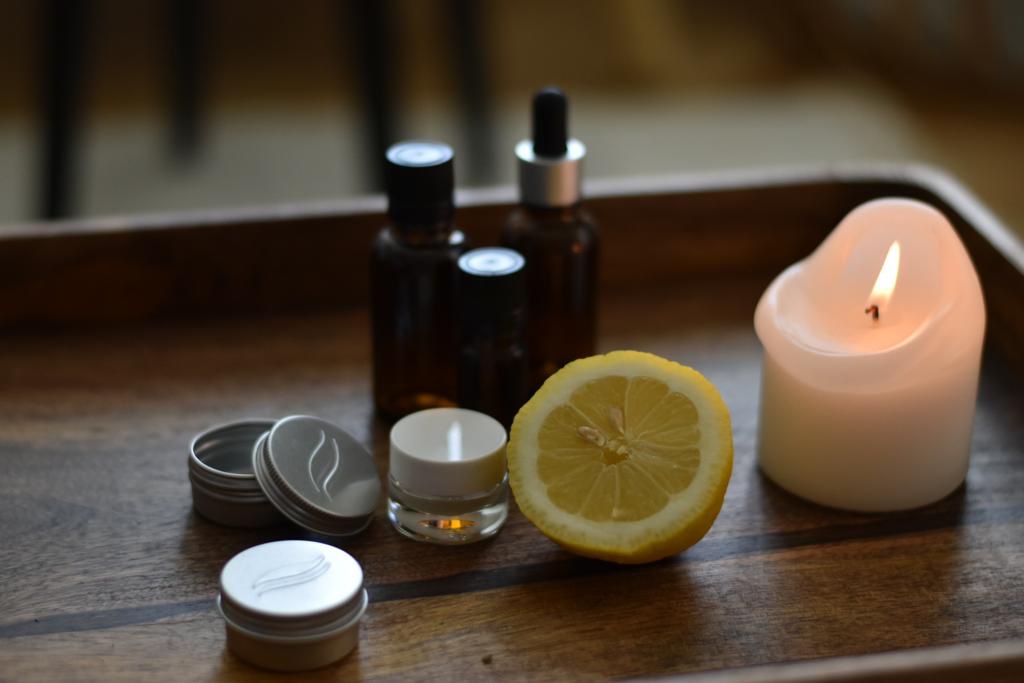
How to store essential oils
Essential oils are extremely sensitive to daylight, which modifies their biochemical structure and thus their benefits. They are also highly volatile so if the bottle is not well sealed, their molecules (thus their potency) will decrease.
They can be easily stored this way to be able to keep your essential oils for years:
🌿 in dark glass bottles
🌿 away from sunlight
🌿 in a cool place (but not in the fridge!)
🌿 always make sure the cap is well sealed
Important: keep out of reach of children.
Some precautions
Even though essential oils are natural, they are active and powerful substances and can become toxic if they are administered incorrectly, too often, or in too large quantity.
Always ask a professional aromatherapist for advice in order to use them in the best possible and safe way. Never increase the recommended dose, frequency and duration.
Important:
🌿 Pregnant/breastfeeding women and children can use aromatherapy under certain conditions. Some essential oils are strictly forbidden.
🌿 Some essential oils are forbidden if you suffer from epilepsy, asthma, hypo- or hyperthyroidism, if you take a blood thinner or have had hormonal cancer.
🌿 Always wash your hands after applying essential oils.
🌿 Keep essential oils out of the reach of children.
🌿 Never insert pure essential oils into your nose, ear canal, or genitals. Never put essential oil in your eyes.
🌿 In the event of accidental ingestion or irritated skin, ingest or apply a vegetable oil (like olive oil) to dilute the essential oil then contact a poison control center.
